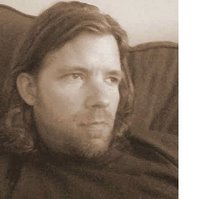In my last entry, I tried to figure out what the ideal of freedom actually is. While there are two types of freedom, physical and intellectual, I focused on the physical ideals in the private and public spaces. Ideally our actions are manifestations of our thoughts, so in this entry I will focus on intellectual freedom and how factors such as money, education, culture and social pressure as well as mass media influence the reality of freedom.
The most obvious limitations to freedom are the rules, regulations and guidelines imposed upon people by religions and governments to affect its community’s behavior. I do get “thou shalt not steal” and “thou shalt not murder,” but I don’t understand why they seek to control personal behavior. If a person’s actions are an expression of their mind, then to the extent that legal measures impose behavior they also mask behavior reflective of the individual’s beliefs. In other words, when a person’s actions are curtailed, other members of the community never learn where their hearts and minds lay. In this way, social pressure and cultural constraints are similar to government and religion. It is only when people are allowed to choose freely can the collective be allowed to judge individuals for who they really are rather than for their appearances. As a result of our system, dysfunction develops between thought and action and magnifies itself from the individual to society as a whole. Whereas codified behavior solves problems in one direction, it also creates them in other ways.
Economics provide further constraints to freedom. How? Well, the more money you have, the more options you have. To a great extent money decides educational, travel and leisure opportunities. An argument may be that anyone can work hard and avail themselves to these opportunities. That argument, however, presupposes that everyone can earn enough money to do these things. However, the nuts and bolts accounting of this veiled vision doesn’t hold up. The reality is that the current economic system dictates a pyramid structure – it requires that the majority earn less and provide the mechanical labor to support the affluence of those above. Again, this is not necessarily wrong; it is merely a reflection of the collective wisdom.
Education permits other forms of constraints. While it is not absolute in limiting people’s opportunities, in general it determines your position in today’s labor force. The larger argument I would like to make is not for equality in job opportunity, but in equality of opportunity to realize one’s personal potential. After laws, we are most limited by ourselves, and the frames that form our mind and thought processes. Those frames consist of language and logic. They determine one’s ability to distinguish facts and deconstruct the fictions that surround us. The most powerful education comes in the form of examples, whether they are the examples of our parents, siblings, friends or media icons. To the extent that media shapes the minds, opinions and hearts of its audience, it also frames our freedom. It provides cultural icons that set standards of behavior, goals of achievement, and our reference to the world we live in.
In western and especially American culture, individuality is perhaps the ultimate manifestation of freedom. Some argue individuality as nothing but narcissism, while others will say that in it’s present form individuality is nothing more than consumerism – I am what I buy. It does seem that the social pressure to be an individual results more in exterior style management observed and borrowed from our cultural icons and purchased at the local mall than in introspective and creative thought. While it is not yet the perfect antidote, a formal education is the best way yet to counteract the influence the other forms of restraints.
Where institutional pressures trump one’s ability to explore themselves, one’s beliefs, ones creativity, it seems to me counterproductive toward achieving happiness and progressing as a society. On the flip side is the preaching of one’s individuality to others, what might be termed egoism. Oddly I see that both result from insecurity of self -- whether that self is an individual or an institution. If you are happy with you are and what you believe, do you need for others to think as you do? While there has been great technological and cultural innovation, in its modern manifestation freedom continues to be driven more by narrowly defined interests than the human spirit. Personally, I believe we hold far more potential within each of us than just an end consumer of products of dubious value. People have yet to fully liberate themselves. This stifled and limited version defined by the institutions we have created is the product of man’s nearsightedness; and, the ideal will lead us to an incredible diversity of thought and creativity yet to be realized.
Monday, January 15, 2007
Subscribe to:
Post Comments (Atom)



No comments:
Post a Comment